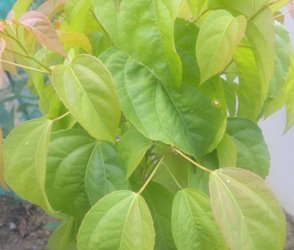
OUR TREATMENT |
PARKINSON |
OTHERS ACUPUNCTURE AND HERBAL MEDICINE TREATMENT |
Acupuncture and Herbal Treatment Hyperactive Behaviour Kids Treatment
|
 |
PARKINSON
Parkinson disease (PD) is an age-related deterioration of certain nerve systems, which affects your movement, balance, and muscle control.
The loss of these specific brain cells and decline in dopamine concentration are the cornerstone of signs and symptoms of PD as well as the target for treatment. The biological mechanism responsible for the brain cell loss has not been identified.
- Parkinson disease is one of the most common movement disorders, affecting 1% of people older than 60 years. PD is about 1.5 times more common in men than in women, and it becomes more common as you age.
- The average age of onset is about 60 years. Onset before age 40 years is relatively uncommon, but the recent diagnosis of actor Michael J. Fox shows that younger people are also vulnerable.
- In PD, brain cells deteriorate (or degenerate) in an area of the brain called the substantia nigra. From the substantia nigra, specific nerve cell tracts connect to another part of the brain called the corpus striatum, where the neurotransmitter (a chemical messenger in the brain) called dopamine is released. Dopamine is an important neurotransmitter and alterations in its concentration can lead to different medical problems.
PARKINSON HERBAL TREATMENT CURE
Parkinson's disease affects the way you move. It happens when there is a problem with certain nerve cells in the brain.
HERBAL TREATMENT FOR PARKINSON
When you have Parkinson’s, these nerve cells break down. Then you no longer have enough dopamine, and you have trouble moving the way you want to.
ACUPUNCTURE HERBAL FOR PARKINSON
Parkinson’s affects muscles all through your body, so it can lead to problems like trouble swallowing or constipation. In the later stages of the disease, a person with..
Parkinson’s is progressive, which means it gets worse over time. But usually this happens slowly, over a period of many years. And there are good treatments that can help you live a full life.
No one knows for sure what makes these nerve cells break down. But scientists are doing a lot of research to look for the answer. They are studying many possible causes, including aging and poisons in the environment.
| :: CLICK HERE FOR MORE VIDEO :: |
Malaysia Acupuncture News: THE STAR “If patients have a phobia of needles, they can be treated with herbs alone but it depends on the problem. For example, for stroke and cerebral palsy, I have to use needles,”said Leong Hong Tole, one of the well-known acupuncturist and herbalist in Malaysia. |
Parkinson Treatment - Email HERE!
